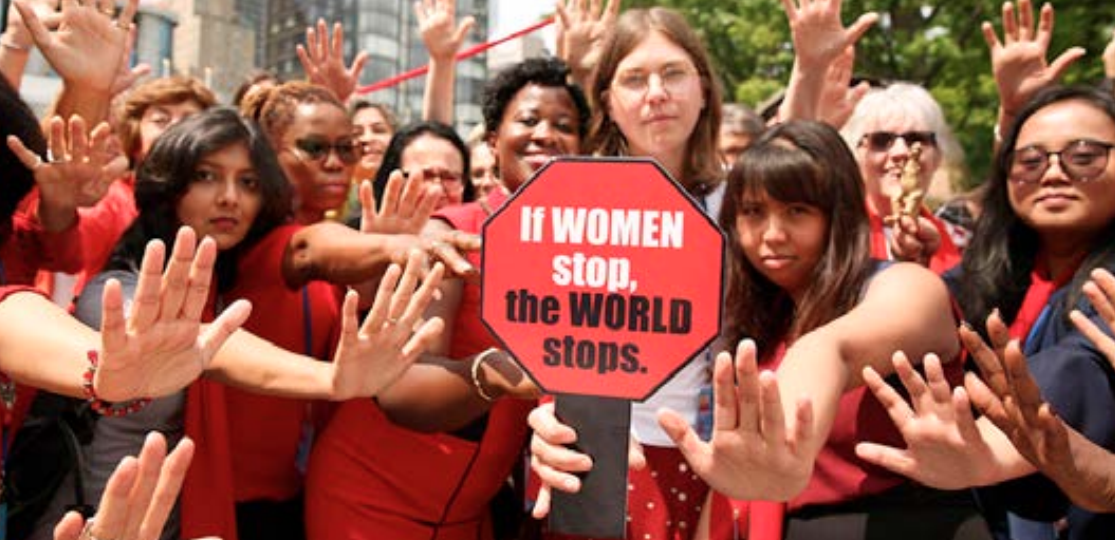
Amid the global pandemic, women human rights defenders (WHRDs), traditionally confronting gender-based targeting in all areas and contexts, have seen their situation particularly aggravated, as they have continued to be exposed to specific dangers and attacks – while sexual and genderbased violence (SGBV) attacks in domestic contexts have considerably increased during confinement, as well as those vulnerabilities derived from their role as caretaker or source of family income, especially in socioeconomically devastated communities.
55% of the Human Rights Defenders supported by the EU HRD mechanism are WHRDs or trans-male, trans-female, gender queer or gender-nonconforming defenders
ProtectDefenders.eu has adopted and embraced a gender strategy that permeates all programmes, implementing partners, and actions, and de facto mainstreams gender in all aspects of the support provided. This strategy grants a greater consideration of the needs and contexts of women, trans and non-binary HRDs in the design, implementation and follow-up of activities across all ProtectDefenders.eu programmes, by ensuring that all direct work with defenders – such as grants, relocation, training, capacity-building, accompaniment, and missions, is conducted in a gender-sensitive manner. Furthermore, it applies a gender-sensitive lens throughout all ProtectDefenders.eu’s policies, communication, and monitoring and evaluation programmes.
(ProtectDefenders.eu’ support) was an act of solidarity that gave me strong confidence that as a WHRD, I am not alone – Sudanese WHRD
All ProtectDefenders.eu partners have recognised the importance of protecting against sex or gender-based harassment and violence such as sexual, cyber, and sexist harassment, reputational threats, threats against the family, children, etc. as part of their definition of a security incident. As such, any risk analysis takes into account the specific and intersectional needs of women, trans, and nonbinary HRDs, as well as the particular contexts and patterns of violations against them. Procedures for processing requests for support allow enough flexibility to accommodate the specific circumstances of women HRDs, also taking into account the cross-cutting issues WHRDs face, including but not limited to language skills, well-being, and self-care measures.
ProtectDefenders.eu’s relocation fund changed me and my family’s life for good – Afghani WHRD
Moreover, ProtectDefenders.eu’s grant-making for protection measures takes into account the impact of attacks on the wider group of individuals that WHRDs may represent or work with, so these measures also work to prevent violence against other WHRDs from the same group, community, or those who share similar causes. Moreover, our protection grants provide childcare, family, or community support in case of imprisonment. Our temporary and urgent relocation programmes systematically consider further assistance for WHRDs during relocation, where they may be subject to gendered violence, including from family members. During relocation, education and schooling for children are assessed and considered.
We have been inspired by the knowledge that we are not alone – Serbian WHRD organisation
Furthermore, during fieldwork activities, ProtectDefenders.eu makes sure to meet and involve directly women’s / LBTI + organisations including those that are particularly disconnected or isolated. In addition, ProtectDefenders.eu ensures there is a gender balance among the participants conducting the missions. When inviting HRDs to training sessions, missions, arranging travel, the provision of funding for childcare, travel of a guardian, visa application costs, and related travel to the capital or neighboring country is included when necessary.


